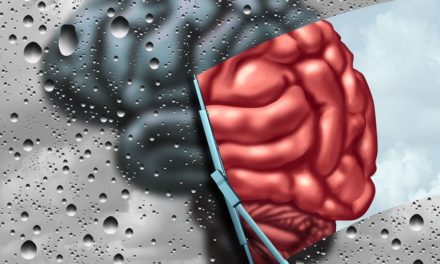Docosahexaenoic acid, or DHA, is an omega-3 fatty acid that is a primary structural component of the human brain, cerebral cortex, skin, and retina. A small amount (1-2%) of the body’s DHA can be manufactured from alpha linoleic acid (ALA) in the diet. Since this is such a small amount, DHA must be obtained from the diet or from supplements. In the diet it is obtained from shellfish, cold water fish and certain species of algae. Vegans can consume ALA, which is found in plant sources such as walnuts, flaxseeds, tofu, soybeans and hemp products. Often this does not supply enough DHA, especially for pregnant or lactating women. Conversion of ALA to DHA is very inefficient in humans according to studies. Vegans can also take DHA that has been extracted from algae.
DHA consumption during pregnancy and lactation is crucial because DHA makes up 90% of the omega-3 fatty acids in the brain and as much as 25% of the brain’s total fat content. Research has shown that it is an important nutrient for the developing fetus. A major source of the baby’s DHA is from breast milk.
The benefits of omega-3 fatty acids have been extensively studied and shown to support anti-inflammation pathways. As such, omega-3 fatty acids have been found to be beneficial to people with a variety of conditions. In many of these studies the subjects are given a combination of eicosapentaenoic acid (EPA) and DHA. There are, however, some studies that focus on DHA alone.
One study compared EPA and DHA head-to-head. DHA was found to be much better at reducing inflammatory markers than EPA. The researchers stated, “DHA is more effective than EPA in modulating specific markers of inflammation as well as blood lipids. Additional studies are needed to determine the effect of a long-term DHA supplementation per se on cardiovascular disease risk” You can follow this link to read the entire study.
Patients with ADHD may have low levels of DHA. One analysis looked at 61 studies that found a link between low DHA levels and ADHD. Other analyses echo this finding.
As stated, DHA is very important for brain development, learning and behavior. It may be especially important for the aging brain. As the brain ages, there is a loss of phospholipids and myelin lipids. This may be why low levels of DHA are be linked to the development of dementia. One study concluded, ”The top quartile of plasma PC DHA level was associated with a significant 47% reduction in the risk of developing all-cause dementia in the Framingham Heart Study.”
Omega-3 fatty acids, in general, support pathways that aid in cognition, according to studies. One study looked at 485 subjects over the age of 55 with age-related cognitive decline. The researchers concluded, “Twenty-four-week supplementation with 900 mg/d DHA improved learning and memory function in age-related cognitive decline and is a beneficial supplement that supports cognitive health with aging.”
Another small study, looked at 36 subjects. They were given a DHA-fortified fish oil supplement or a placebo for 12 months. The fish oil group showed significant improvement in short-term and working memory, immediate verbal memory, and delayed recall capability when compared to the placebo group. The 12-month change in memory was significantly better in the fish oil group. The researchers concluded, “This study suggested the potential role of fish oil to improve memory function in MCI subjects. Studies with larger sample sizes, longer intervention periods, different fish oil dosages and genetic determinations should be investigated before definite recommendations can be made.”
Beyond memory and cognition, scientists have looked at quality of life and decrease depressive symptoms as they relate to essential fatty acids. One study looked at 50 subjects over the age of 65. Researchers stated, “Increased intakes of DHA and EPA benefited mental health in older people with MCI. Increasing n-3 PUFA intakes may reduce depressive symptoms and the risk of progressing to dementia. This needs to be investigated in larger, depressed samples with mild cognitive impairment.”
Researchers in one meta-analysis of studies concluded “DHA, alone or combined with EPA, contributes to improved memory function in older adults with mild memory complaints”, according to the researchers. Another analysis found DHA to support pathways for people with cognitive impairment (but not dementia or Alzheimer’s disease.
One study suggested a mechanism for the role essential fatty acids play in Alzheimer’s disease. It looked at the role that the liver may play in Alzheimer’s disease. It suggests that the liver enzyme system that provides docosahexaenoic acid to the brain is dysfunctional in this disease. Docosahexaenoic acid levels were reduced in temporal cortex, mid-frontal cortex and cerebellum of subjects with Alzheimer’s disease, compared to control subjects.
Of course, DHA provides other health benefits. It supports anti-inflammatory pathways. Since all chronic disease involves inflammation, this is worth looking at. Because the amount of DHA necessary for the proper function of the brain and nervous system is very high there may be a role for supporting cognition, learning and memory.






